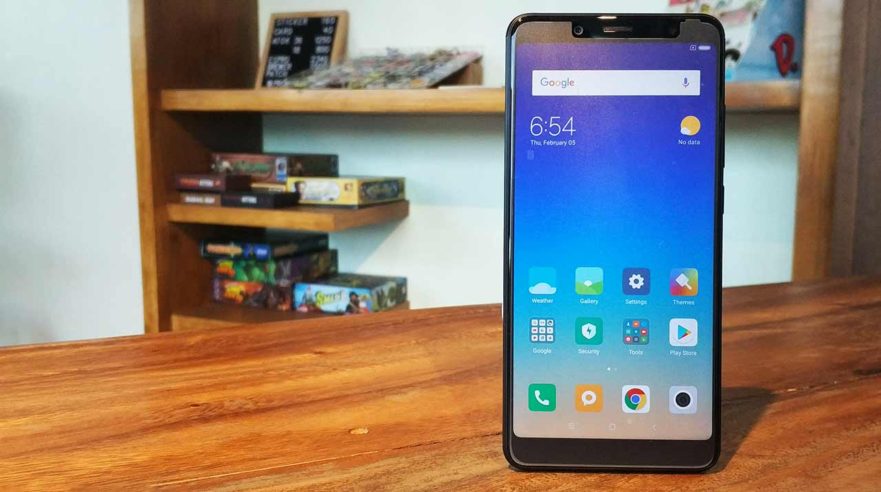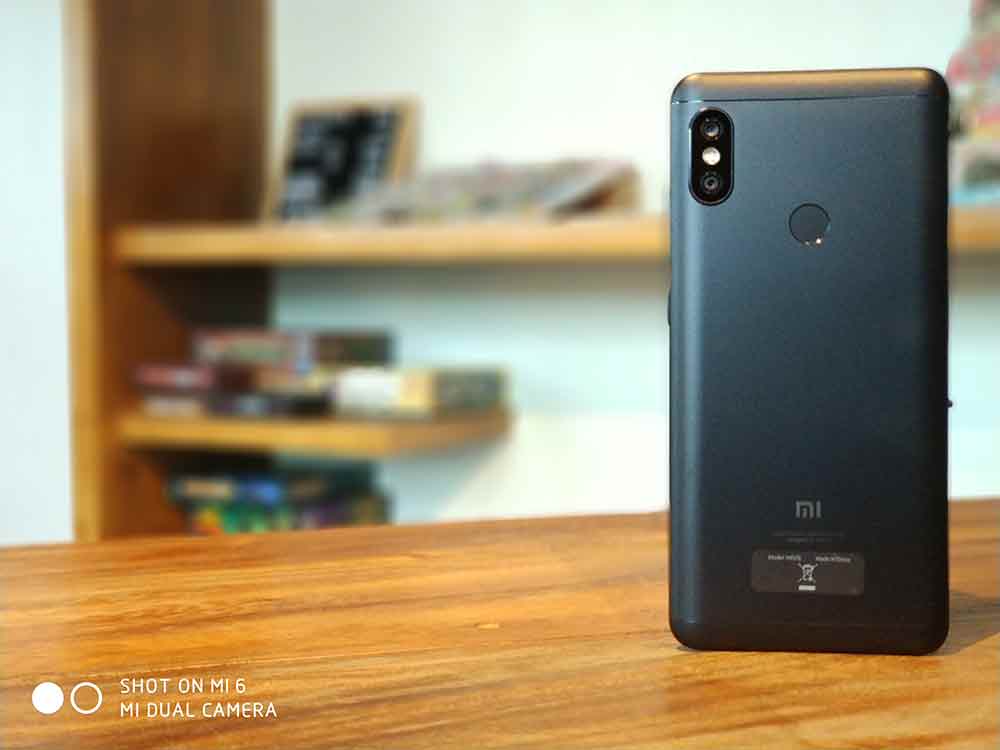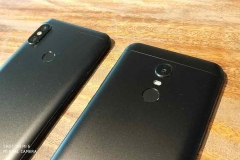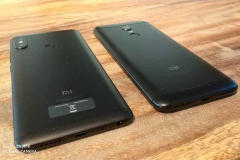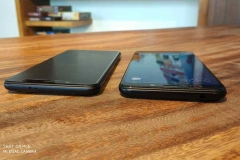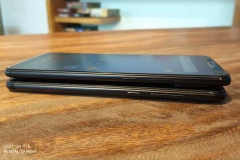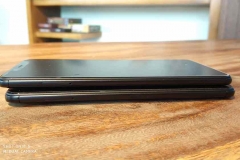Back in February 2018, Xiaomi announced the Redmi Note 5 Pro in India following weeks of leaks and rumors and speculation about the future of the popular midrange line.
(The author, whose passion is to review whatever Xiaomi releases, is a contributor at Revü Philippines.)
SEE ALSO: Full specs of the Xiaomi Redmi Note 5 Pro
The Xiaomi Redmi Note 5 Pro is the world’s first phone to ever sport the newly minted Qualcomm Snapdragon 636 processor, and the company found itself in the spotlight for being the first manufacturer to use it.
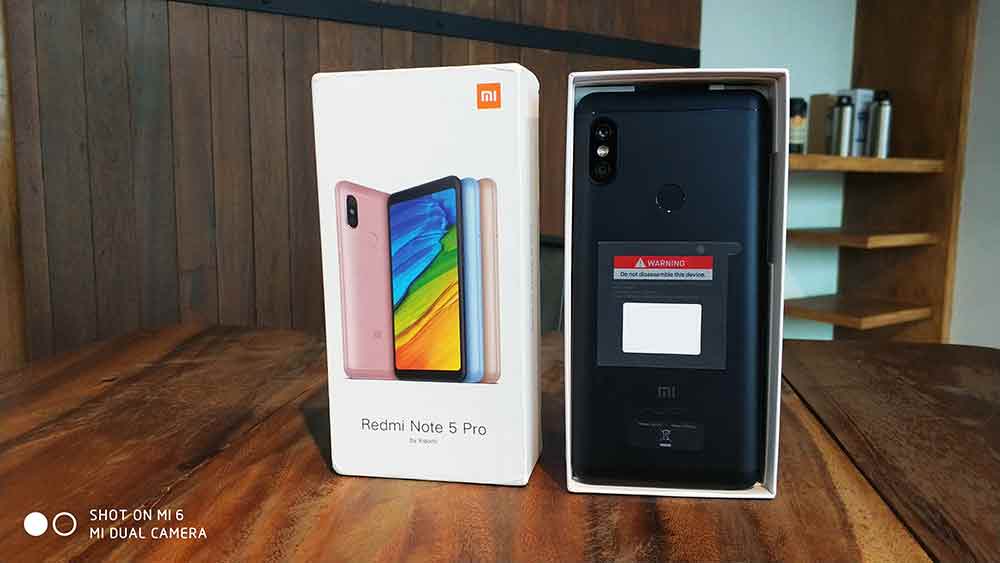
Pricing starts at ₹13,999 for the unit with 4GB of RAM and 64GB of memory — which is the version we tested.
Pricing starts at ₹13,999, around P11,243 or $216, for the unit with 4GB of RAM and 64GB of memory — which is the version we tested — whereas the 6GB RAM model has a ₹16,999 (P13,652 or $267) price tag.
Design
Compared to its predecessor, the Redmi Note 4X, the Redmi Note 5 Pro features a revamped design on the front, sporting the popular 18:9 screen ratio. The front is pretty similar to that of the Redmi 5 Plus, except some of the sensors above the screen have a different placement. The two are also almost identical in weight and dimensions.
Compared to its predecessor, the Redmi Note 4X, the Xiaomi Redmi Note 5 Pro features a the popular 18:9 screen ratio. The front is pretty similar to that of the Redmi 5 Plus, except some of the sensors above the screen have a different placement.
The bezels around the display are smaller now. The bottom bezels can still fit capacitive buttons, but Xiaomi has decided to incorporate them into the screen instead.
The almost-bezel-less front is a significant upgrade for the Note series, and it follows the trend set by the original Xiaomi Mi MIX in the smartphone industry. Now, people can enjoy a near-bezel-less phone without spending as much money to purchase the Mi MIX or the Apple iPhone X.
At the back, there is no denying that the camera placement and design are similar to the iPhone X’s. Combining the look and feel of a non-Xiaomi flagship is probably one of the biggest surprises in the history of Redmi Note models. How cool is that?
Xiaomi Redmi Note 5 Pro vs Xiaomi Redmi 5 Plus
Let’s take a side-by-side look at the two phones.
Views from the back, bottom, top, right, and left
Performance
The Redmi Note 5 Pro is the first to deploy the new Qualcomm Snapdragon 636 system-on-a-chip. We were able to test its power to the full, running intensive games and multitasking with many apps open in the background.
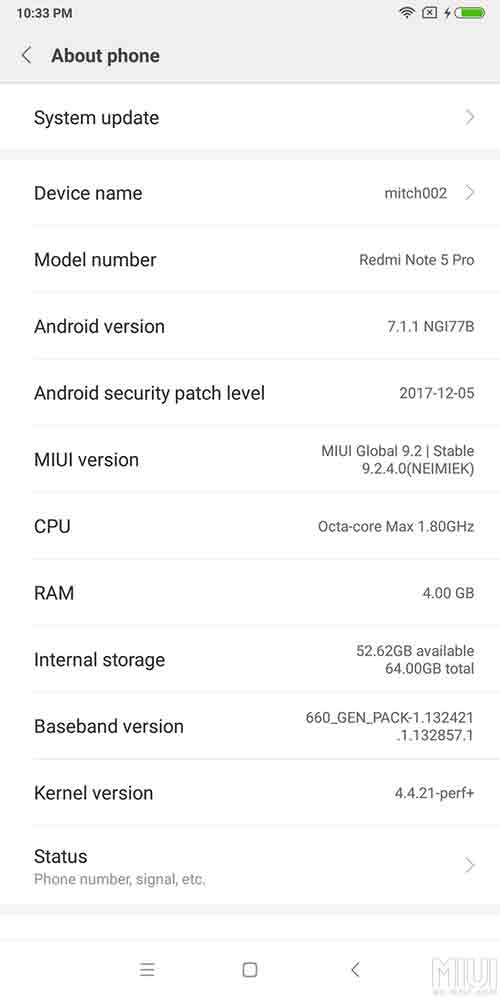
The Xiaomi Redmi Note 5 Pro is the first to have Snapdragon 636. We were able to test its power, running intensive games and multitasking with many apps open in the background.
Our unit did a good job running games like NBA 2K18 for Android. The graphics were rendered nicely on the near-all-screen phone. We were able to finish two matches in NBA 2K18 in one sitting, and our unit responded well. It wasn’t laggy after playing for some time.
Web surfing, chatting, making calls, and navigating the phone were all done at about the same time, and yet the Redmi Note 5 Pro remained stable and did not show signs of slowing down due to too many tasks in the system memory. The Snapdragon 636 lived up to the hype, and for sure, we were able to feel the improvement coming from the overly used Snapdragon 625 inside the Redmi 5 Plus and many more devices.
READ ALSO: NBA 2K18 for Android and iOS: Can your phone run it?
The AnTuTu app gave a score of 112,601 points to the Xiaomi Redmi Note 5 Pro with 4GB of RAM and 64GB of storage. It’s a big jump from the Redmi 5 Plus, which posted 63,711 points during our testing. We’d like to point out that benchmarks should not be the determining factor in purchasing a phone — it’s the real-world performance that matters most. Nevertheless, we can say that this chipset is worth considering.
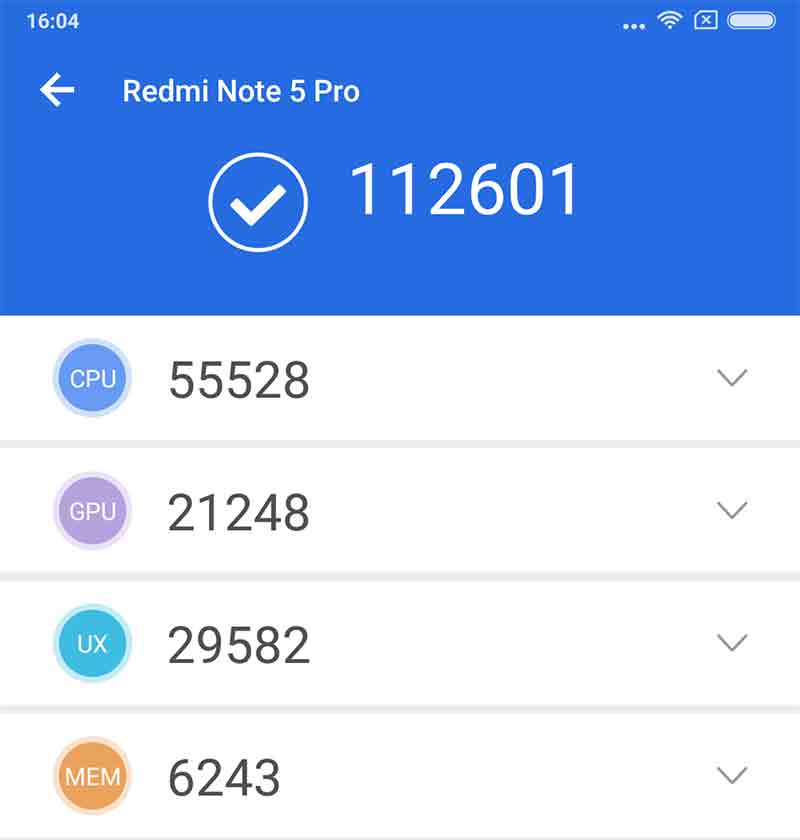
The Xiaomi Redmi Note 5 Pro with 4GB of RAM and 64GB of storage got a score of 112,601 on Antutu. It’s a big jump from the Redmi 5 Plus’ 63,711 points.
The taller aspect ratio makes for a nice viewing experience, especially when watching movies and TV shows. The screen resolution at 1080p isn’t that impressive by today’s standards, but it’s good enough for most tasks. The sound coming from the single loudspeaker is also decent.
Face recognition
One fun feature that you might want to try out on this device is facial-recognition security, which unlocks the phone using only your face. This feature was first deployed by Xiaomi on the Mi Note 3, which we were able to test as well. The facial unlocking of the Redmi Note 5 Pro is snappy when it does respond. In dark areas, though, we had a difficult time unlocking the phone.
SEE ALSO: Xiaomi Mi Note 3 review: Bigger, cheaper Mi 6 with less firepower
Connectivity
Xiaomi’s Redmi Note 5 Pro supports five different LTE bands in India (which is the country of origin of our unit). It’s easy to switch to LTE data inside the Settings app, but once you do, the second SIM card will be restricted to 3G networks. However, you can freely choose which SIM you want to use LTE data since the Redmi Note 5 Pro is a dual-LTE, dual-standby smartphone.
READ ALSO: Xiaomi stores likely to open at Mall of Asia, 2 other PH sites in 2018
We didn’t encounter any problems browsing the web using LTE or 3G in the Philippines. The dual-standby mode works seamlessly as well. Wireless connectivity over Wi-Fi is smooth, and the phone supports Wi-Fi Direct for data transfer between devices.
SEE ALSO: Xiaomi Mi A1 Android One phone review: Pure Android all the way
Wireless screen mirroring is available via the Miracast protocol. Bluetooth 5.0, GPS, and GLONASS are present and working well. We had a pleasant experience driving around the city using Google Maps to navigate on the Redmi Note 5 Pro.
Camera
Every time we get our hands on a new device, one of the things we’re most excited to try out is the main camera system. For a lot of people, the camera is perhaps the most important aspect of a phone. “How good is the camera?” is the question many are going to be asking.
Here’s the good news: The rear camera of the Redmi Note 5 Pro is easily the best in the series, and it’s largely thanks to Xiaomi including the first-ever Sony IMX camera sensor in its midrange lineup.
The camera takes crisp and well-balanced photos in daylight. It can also take portrait or bokeh-style shots with some depth added to the image. When it comes to shooting in low-light areas, it is vastly improved over the camera of the Redmi Note 4X.
READ ALSO: Xiaomi Redmi 5 Plus review: A worthy Redmi Note 4X upgrade?
That’s pretty much expected given the difference in imaging performance between the camera hardware in the two phones. Specifically, the Redmi Note 4X uses an Omnivision sensor, while the Redmi Note 5 Pro is equipped with a Sony IMX 486 sensor.
Another thing worth mentioning is that the Xiaomi Note 5 Pro’s manual mode in the default camera app only lets you set the ISO and white-balance values. Controls for the focus and exposure time are nowhere to be found. It doesn’t let you switch between the zoom and wide-angle lens either.
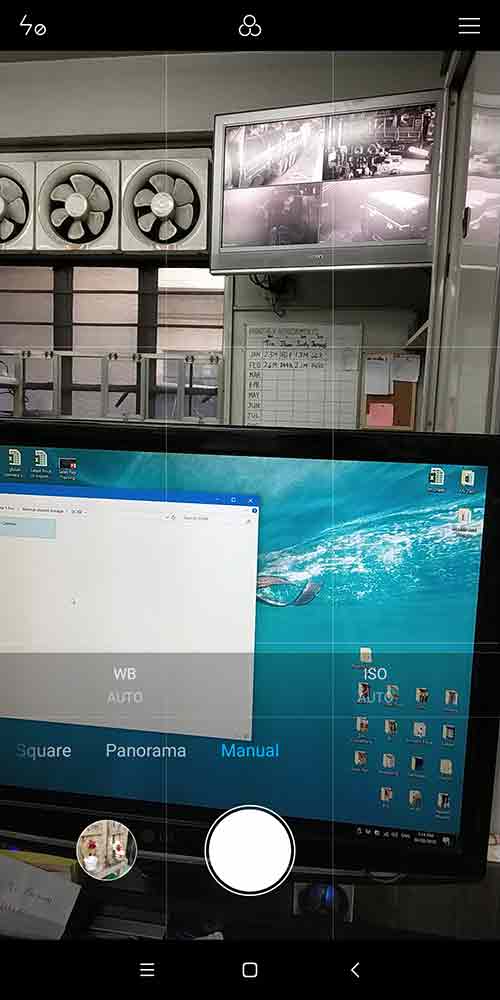
The Xiaomi Note 5 Pro’s manual mode in the default camera app only lets you set the ISO and white-balance values.
Here are some camera samples that compare the image quality of the Redmi Note 5 Pro to the flagship Mi 6, which is also equipped with a Sony IMX sensor. Photos taken with the Note 5 Pro appear a little overexposed. Thus, we think Xiaomi’s high-end offering wins this comparison.
Sample photos taken with the Xiaomi Redmi Note 5 Pro
Battery life
We were able to achieve good battery-test results from the Snapdragon 636 inside the Note 5 Pro. The PC Mark battery test rated it at 12 hours and 38 minutes, which is quite impressive. In practice, our unit consistently lasted a day with normal usage on a single charge.
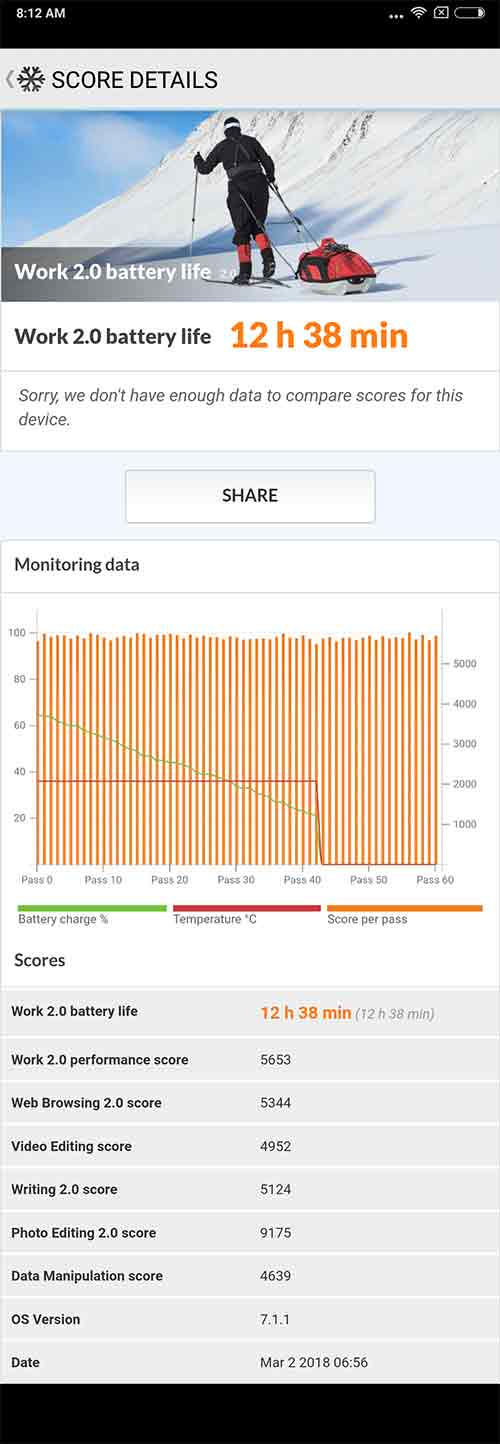
The PC Mark battery test rated the Xiaomi Redmi Note 5 Pro at 12 hours and 38 minutes, which is quite impressive.
We were able to test the input amperage at 2.1amp using the supplied charger and cable. And while the Snapdragon 636 supports Qualcomm’s Quick Charge 3.0 standard, Xiaomi opted to limit the Note 5 Pro to the slower Quick Charge 2.0 standard, likely in an effort to maintain the reasonable cost of the device.
Final thoughts
So, after playing around with the Xiaomi Redmi Note 5 Pro for a while, do we think it’s a worthy upgrade from last year’s Redmi Note 4X? Without a doubt, the answer is yes. It’s simply the better phone.
Do we think the Xiaomi Redmi Note 5 Pro is a worthy upgrade from last year’s Redmi Note 4X? Without a doubt, the answer is yes. It’s simply the better phone.
We’ve lauded the Redmi Note series for its combination of performance and price. With Qualcomm Snapdragon 636 and the Sony IMX sensor, the Note 5 Pro is an even better value. In terms of design, processing power, and camera performance, it’s one of the best options at this price point.
Share this Post


